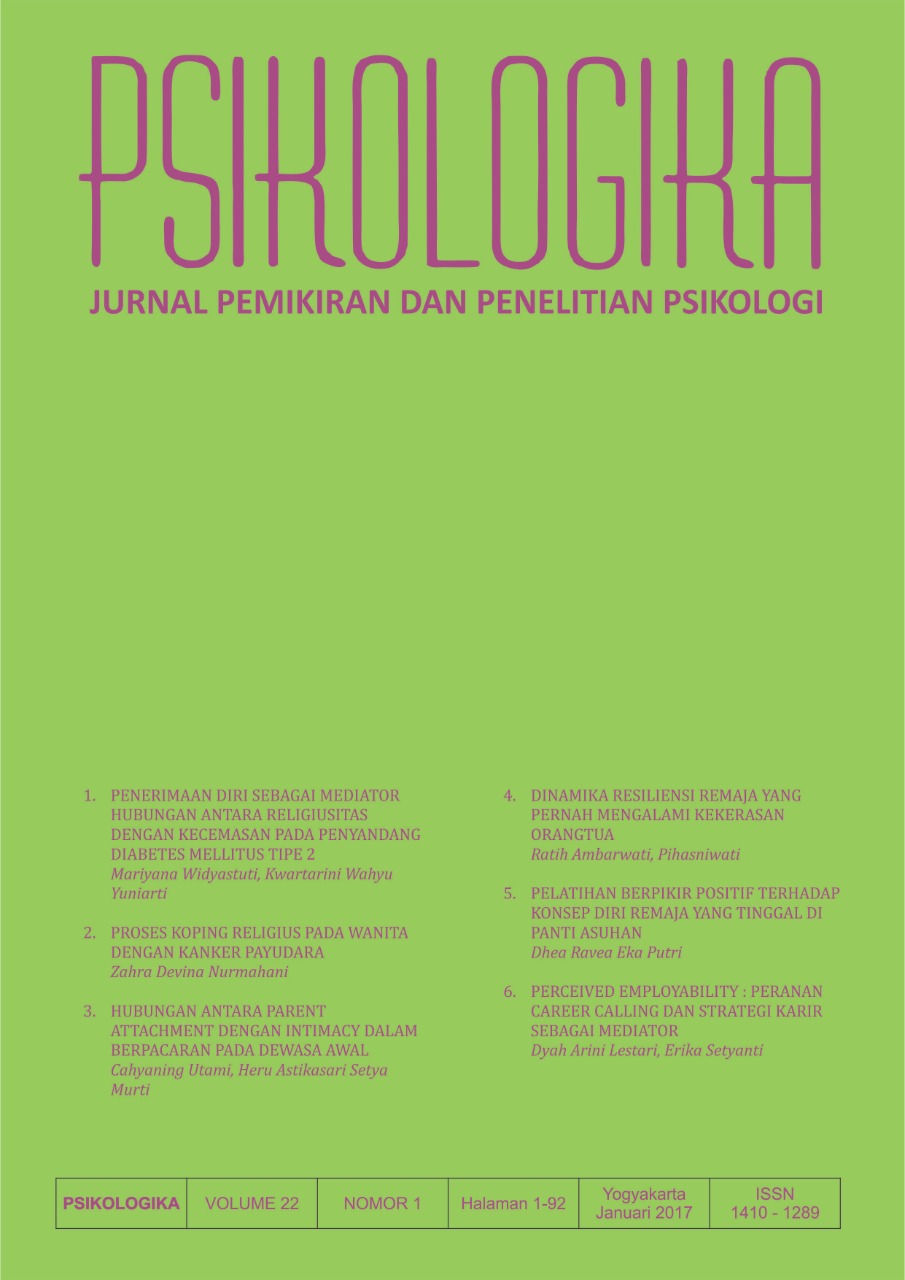Main Article Content
Abstract
Self-concept is an individual view about their self based on a variety of experiences during their life. This topic is interesting to be examined in orphanage context, because adolescents have various experiences in their life before and during their stay in the orphanage. Aim of this study was to understand the role of positive thinking training on
adolescents’ self-concept who lived in an orphanage. This research was quasi-experimenta lwith nonrandomized pre-test post-test control group design model. Measuring instruments used self-concept scale. Subjects of this study were 30 adolescents who live in Al-Hidayah Batu orphanage, and were in the age range 13-17 years and have low and medium selfconcept
score category. Subject selection technique used purposive sampling. However, for subject’s classification on experimental and control group used random sampling method. Analysis used Independent Sample t-Test, and p= 0,003 (p<0,05). The conclusion was positive thinking training could improve self concept of adolescents who lived in orphanages.
Keywords: positive thingking training, self concept, orphanage, adol
adolescents’ self-concept who lived in an orphanage. This research was quasi-experimenta lwith nonrandomized pre-test post-test control group design model. Measuring instruments used self-concept scale. Subjects of this study were 30 adolescents who live in Al-Hidayah Batu orphanage, and were in the age range 13-17 years and have low and medium selfconcept
score category. Subject selection technique used purposive sampling. However, for subject’s classification on experimental and control group used random sampling method. Analysis used Independent Sample t-Test, and p= 0,003 (p<0,05). The conclusion was positive thinking training could improve self concept of adolescents who lived in orphanages.
Keywords: positive thingking training, self concept, orphanage, adol
Article Details
License
Authors who publish with this journal agree to the following terms:
- Authors retain copyright and grant the journal right of first publication with the work simultaneously licensed under a Creative Commons Attribution-ShareAlike 4.0 International License that allows others to share the work with an acknowledgment of the work's authorship and initial publication in this journal.
- Authors are able to enter into separate, additional contractual arrangements for the non-exclusive distribution of the journal's published version of the work (e.g., post it to an institutional repository or publish it in a book), with an acknowledgment of its initial publication in this journal.
- Authors are permitted and encouraged to post their work online (e.g., in institutional repositories or on their website) prior to and during the submission process, as it can lead to productive exchanges, as well as earlier and greater citation of published work (See The Effect of Open Access).




